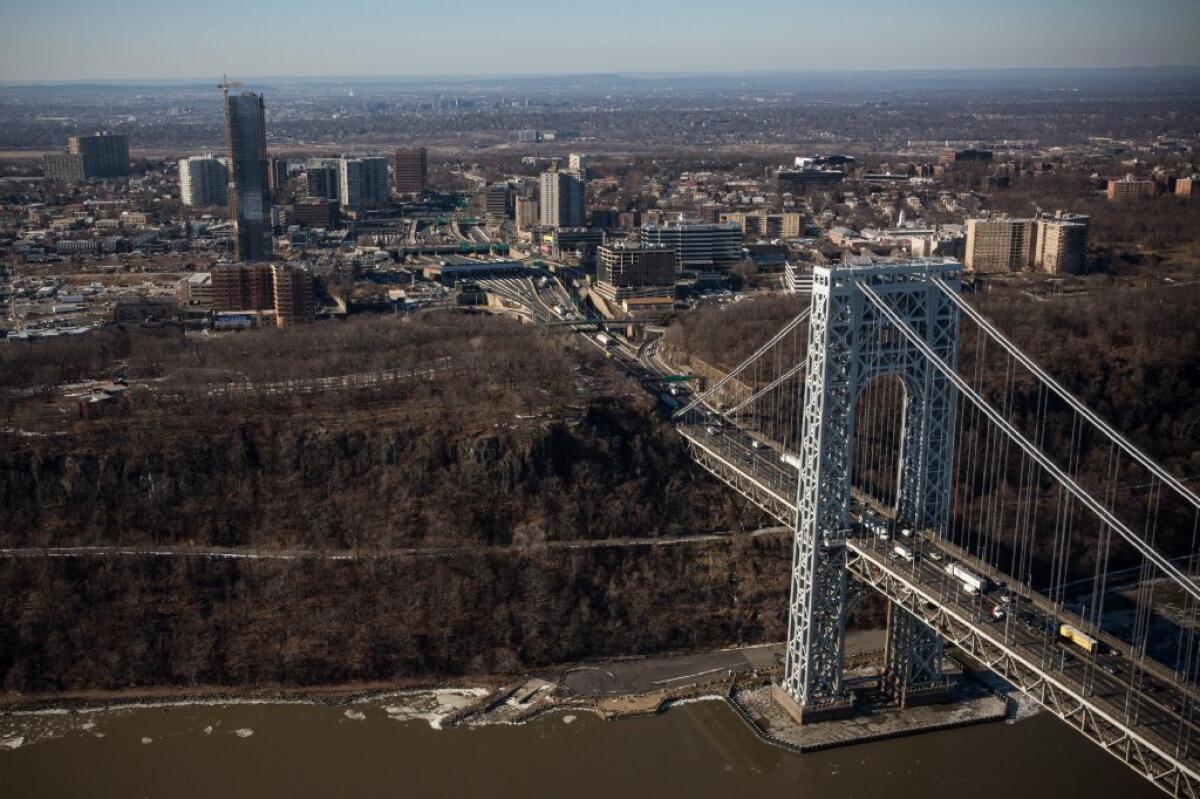Which is the bigger scandal, ‘Bridgegate’ or the NSA?

Even if it ends up derailing Chris Christie’s presidential ambitions, the scandal involving a contrived traffic jam in New Jersey is less of a story than the electronic surveillance programs revealed by Edward Snowden. But “Bridgegate” has something that the more consequential National Security Agency revelations so far lack — the use of government power to punish political enemies.
At his marathon news conference Thursday, Christie said he was “embarrassed and humiliated” by evidence that “people on my team” had orchestrated the closing of lanes from Fort Lee, N.J., to the George Washington Bridge. The purpose of the shutdown apparently was to punish the community’s Democratic mayor for not endorsing Christie’s reelection.
No wonder Christie was sweating. Using the apparatus of government to hurt your political opponents is the definition of the abuse of power.
PHOTOS: Chris Christie, President Obama and the ‘ignorance is bliss’ dodge
Except, of course, when it’s the NSA that’s being accused of that offense. As I have written before, the “abuses” alleged by critics of the spy agency don’t have anything to do with picking on political opponents.
True, the NSA’s activities have the potential for Bridgegate-style abuse. The mass collection and storage of telephone metadata could make it easier for a future Richard Nixon or J. Edgar Hoover to go after political opponents. But it apparently hasn’t happened yet.
There have been other sorts of “abuse.” Last summer, the Washington Post, citing an internal NSA audit, reported that the agency “has broken privacy rules or overstepped its legal authority thousands of times each year since Congress granted the agency broad new powers in 2008.”
But the violations, some of which involved typographical errors, apparently were the result of sloppiness rather than an attempt to pursue some political agenda. The closest the NSA came to that sort of abuse — and it’s not very close — is a handful of cases in which suspicious spies queried the telephone records of their spouses or significant others.
That the NSA isn’t using the information it acquires to target dissidents or unsympathetic politicians doesn’t mean some of its activities aren’t troublesome. But until Snowden or someone else demonstrates that there’s an NSA equivalent of Bridgegate or Nixon’s enemies list, don’t expect a news conference at which Obama says that he’s “embarrassed and humiliated” by what the agency is doing.
ALSO:
Baca’s gone but the problems remain
Liz Cheney’s problem wasn’t her famous name
Follow Michael McGough on Twitter @MichaelMcGough3
More to Read
A cure for the common opinion
Get thought-provoking perspectives with our weekly newsletter.
You may occasionally receive promotional content from the Los Angeles Times.







